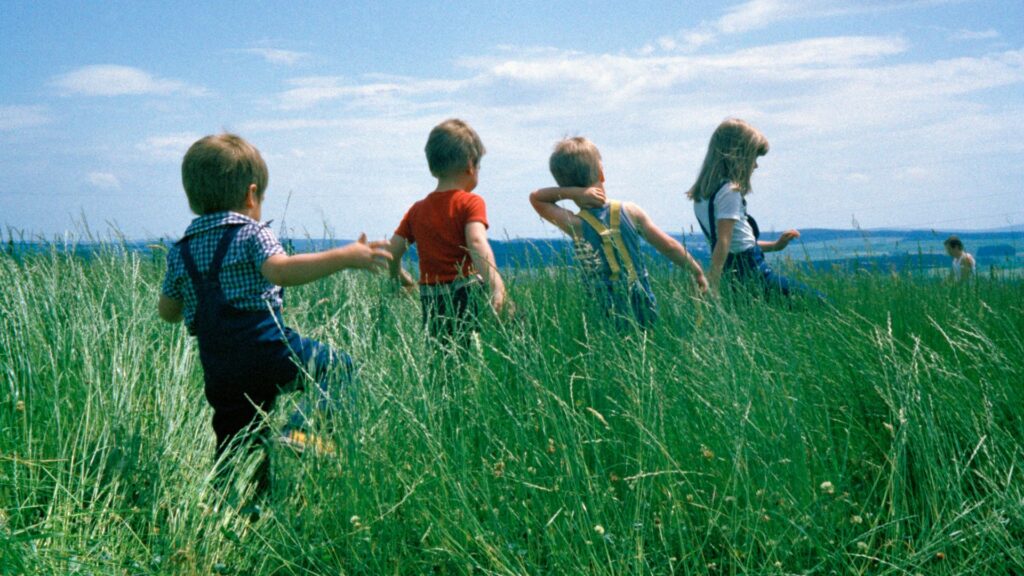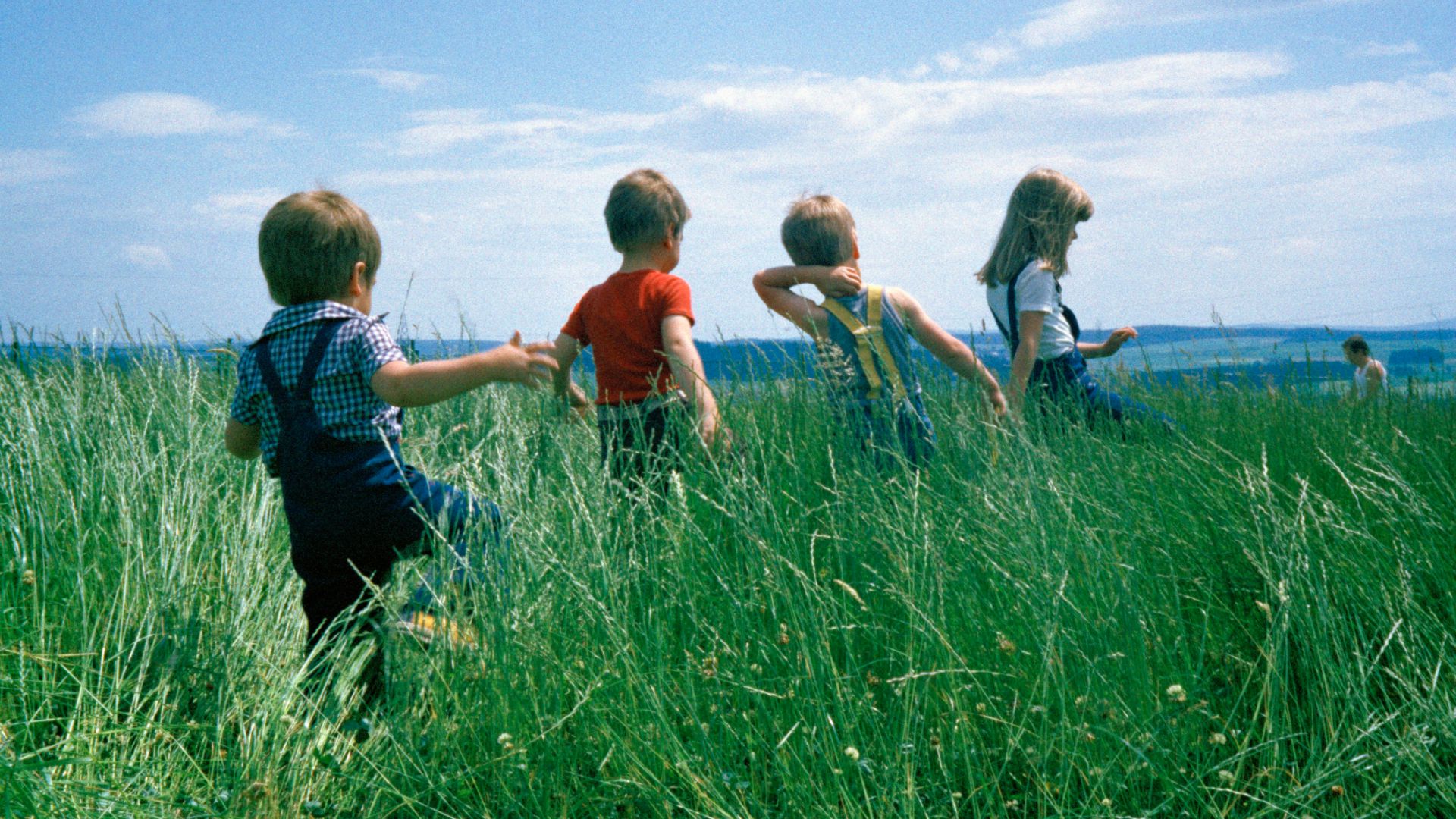
Growing Up In: How Childhood Shapes Adulthood
The phrase “growing up in” evokes a sense of place, time, and circumstance, all of which profoundly influence who we become. Our formative years, the environments we inhabit, and the experiences we accumulate during childhood lay the groundwork for our adult selves. This article explores the multifaceted ways in which growing up in different contexts shapes our personalities, values, beliefs, and overall trajectories in life. Understanding these influences can provide valuable insights into our own behaviors and those of others.
The Impact of Family Dynamics
Family is often the first and most influential environment in which we growing up in. The dynamics within our families, including parenting styles, sibling relationships, and the overall emotional climate, significantly impact our development. Children growing up in supportive and nurturing families tend to develop higher self-esteem, better social skills, and a greater sense of security. Conversely, those growing up in households marked by conflict, neglect, or abuse may face challenges such as anxiety, depression, and difficulty forming healthy relationships later in life.
Parenting styles play a crucial role. Authoritative parenting, characterized by warmth, clear boundaries, and open communication, is often associated with positive outcomes. Children raised in this manner are more likely to be independent, responsible, and academically successful. On the other hand, authoritarian parenting, which emphasizes strict rules and obedience, can lead to anxiety and resentment. Permissive parenting, characterized by a lack of boundaries and high levels of indulgence, may result in children who struggle with self-discipline and responsibility. Uninvolved parenting, where parents are emotionally detached and provide little guidance, can lead to feelings of neglect and low self-esteem.
Sibling relationships also shape our development. Siblings can provide companionship, support, and opportunities for learning social skills such as cooperation, negotiation, and conflict resolution. However, sibling rivalry and competition can also create stress and resentment. The dynamics between siblings are influenced by factors such as age differences, gender, and parental treatment. Children growing up in families with positive sibling relationships often develop strong social skills and a sense of belonging.
The Influence of Socioeconomic Factors
Socioeconomic status (SES) is another significant factor that influences growing up in. Children growing up in low-income families often face numerous challenges, including limited access to quality education, healthcare, and nutritious food. These challenges can negatively impact their physical and cognitive development, leading to poorer academic outcomes and limited opportunities for upward mobility. Furthermore, children growing up in impoverished environments may be exposed to higher levels of stress, violence, and environmental hazards, which can further exacerbate these challenges.
Conversely, children growing up in affluent families often have access to a wider range of resources and opportunities, including better schools, extracurricular activities, and healthcare. These advantages can provide them with a head start in life, leading to greater academic success, career opportunities, and overall well-being. However, affluence can also come with its own set of challenges, such as pressure to succeed, social isolation, and a lack of resilience.
The neighborhood in which a child growing up in also plays a significant role. Children growing up in safe and supportive neighborhoods with access to parks, libraries, and community centers are more likely to thrive. These environments provide opportunities for physical activity, social interaction, and intellectual stimulation. On the other hand, children growing up in neighborhoods characterized by poverty, crime, and violence may face significant challenges to their development.
The Role of Cultural and Societal Norms
Cultural and societal norms also profoundly influence growing up in. The values, beliefs, and traditions of our culture shape our understanding of the world and our place within it. Children growing up in collectivist cultures, which emphasize community and interdependence, may develop a strong sense of social responsibility and a desire to contribute to the well-being of others. Conversely, children growing up in individualistic cultures, which emphasize independence and self-reliance, may prioritize personal achievement and autonomy.
Gender roles and expectations also play a significant role in shaping our development. Children growing up in societies with traditional gender roles may internalize these expectations, leading to differences in their behavior, attitudes, and aspirations. For example, girls may be encouraged to be nurturing and compliant, while boys may be encouraged to be assertive and competitive. These gender stereotypes can limit opportunities and perpetuate inequalities.
Religious beliefs and practices also influence growing up in. Children raised in religious families often develop a strong sense of morality, purpose, and community. Religion can provide a framework for understanding the world and a source of comfort and support during difficult times. However, religious beliefs can also be a source of conflict and division, particularly when they are used to justify discrimination or violence.
The Impact of Education and Learning Environments
Education is a critical factor in shaping our development. The quality of our education and the learning environments in which we growing up in significantly impact our cognitive abilities, social skills, and overall well-being. Children who have access to quality education are more likely to develop critical thinking skills, problem-solving abilities, and a lifelong love of learning.
The learning environment also plays a crucial role. Children growing up in supportive and engaging classrooms with dedicated teachers are more likely to thrive academically and socially. These environments provide opportunities for collaboration, creativity, and critical thinking. On the other hand, children growing up in overcrowded or under-resourced schools may face significant challenges to their learning.
Extracurricular activities also contribute to our development. Participation in sports, clubs, and other activities can provide opportunities for learning new skills, developing social connections, and building self-esteem. These activities can also help children discover their passions and interests, which can guide their future career paths.
Overcoming Adverse Childhood Experiences
While adverse childhood experiences (ACEs) such as abuse, neglect, and household dysfunction can have lasting negative effects, it’s important to recognize that resilience is possible. Children growing up in difficult circumstances can develop coping mechanisms and seek support from trusted adults, such as teachers, counselors, or mentors. These relationships can provide a sense of safety, stability, and hope.
Therapy and counseling can also be helpful in addressing the emotional and psychological wounds caused by ACEs. Therapists can provide a safe and supportive space for children to process their experiences and develop healthy coping strategies. Additionally, interventions such as mindfulness and meditation can help children manage stress and regulate their emotions.
Ultimately, understanding the impact of growing up in various environments can empower us to create more supportive and nurturing environments for future generations. By addressing the challenges faced by children growing up in adversity and providing them with the resources and support they need, we can help them reach their full potential and lead fulfilling lives. [See also: The Importance of Early Childhood Education] [See also: Building Resilience in Children]
Conclusion
Growing up in shapes our lives in profound and lasting ways. From family dynamics and socioeconomic factors to cultural norms and educational opportunities, the environments in which we spend our formative years influence our personalities, values, beliefs, and overall trajectories. By understanding these influences, we can gain valuable insights into our own behaviors and those of others. Furthermore, we can work to create more supportive and nurturing environments for future generations, ensuring that all children have the opportunity to thrive. The experiences of growing up in a particular time and place are unique to each individual, yet share common threads that connect us all. The story of growing up in is a story of resilience, adaptation, and the enduring power of the human spirit. Whether growing up in affluence or poverty, privilege or adversity, the journey shapes the person we become. The challenges encountered while growing up in often forge strength and character. The memories created while growing up in, whether joyful or painful, become integral parts of our identity. The lessons learned while growing up in guide our decisions and shape our perspectives. The community that surrounded us while growing up in leaves an indelible mark on our hearts. The sense of belonging, or lack thereof, experienced while growing up in influences our relationships and our sense of self. The dreams we held while growing up in continue to inspire us, even as our paths may diverge from their original course. The person we are today is a culmination of all the experiences we accumulated while growing up in.

